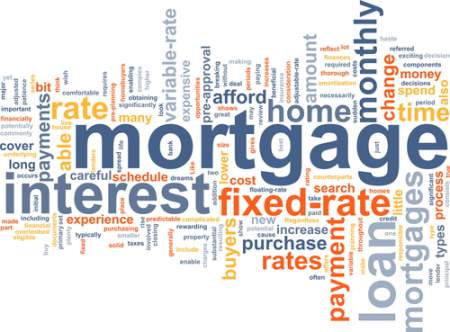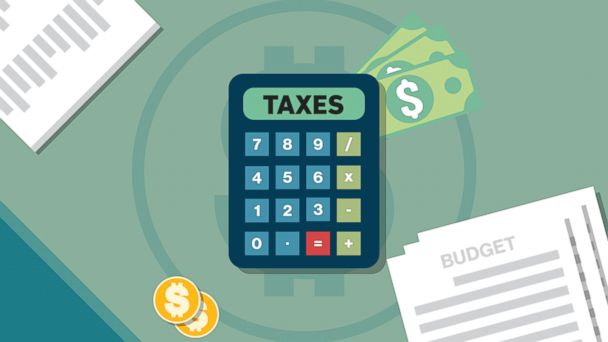What are all of those fees anyway, Lender Charges, Closing Costs. Think of them like this 3rd party legal fees and the taxes and insurance. That’s the easiest way to explain it.
3:00 What are lender fees/closing Costs Start
3:30 Non-Recurring Closing Cost Main Lender fees to eval
4:00 Recurring Closing Cost (pay no attention when comparing costs)
5:40 Most important Charges to Look Out For
6:45 Common Tricks Lenders Use to make their fees “Appear” lower.
 Lender Fees
Lender Fees
Discount
Origination
Credit for interest rate
Processing
Underwriting
Appraisal
Wire
Flood
Credit report
Oh, look, we’re live! What a fantastical day, right? I’m just going to say. No one has said that to you yet, it is beautiful. I’m all about the sun, so I could not be happier, and I have my camera turned because I just think Minnie on my desk is the cutest. Minnie, say hi. Minnie?
Anyway. So, did you guys have a nice break from Facebook yesterday? Wasn’t it awesome? You actually had to talk to people and your real friends and everything.
All right, so let’s get down to business. Today is the fourth video that we’re going to do in the “home buyer boot camp series“. So, if you’re not familiar with this series. It’s a 15-part series that I’m doing to promote education and awareness of the home buying process. We’re going to break it down in little, teeny, tiny steps, so.
This week, we’re going to be talking about lender charges explained, just in plain, plain talk, when you’re buying a home in California.
What are Closing Cost, Lender Fees Explained
So, for me when I look at lender charges, it’s really easy for me to break down what’s the real cost. But, when you don’t understand what all those line item charges are. It’s extremely confusing, because what you wind up looking at, right? You look at the payment, and then you look at how much money you need. And so, if Lender A, you need 20,000, and Lender B, you need 25,000, you automatically assume Lender A is better. And that is simply not the case.
A lot of times, it’s easy for the fees to get manipulated. But I’m going to break down the easiest way. To look at Lender Charges and be able to compare and contrast an actual lender charges. So you know like, no one’s going to get the better of you. Because we’re going to explain everything to you. Okay?
But, I’m not able to screen share in a fashion that I would like. I’m just going to do a brief, quick little video here. Just explain it in a nutshell. Then I’m going to do a second video where I’m going to put up all of the charges. Then you’ll be able to see it in writing. It’s so exciting. Okay.
Well, thanks for joining, everyone. My name is Teresa Tims. I’m president of TDR Mortgage and Real Estate Group in Upland, California. I serve the entire Southern California market, and I specialize in mortgages. I aid and support all of the activities of realtor partners throughout the Southland. Assist them with their buyers who need home loan financing. So, let’s get started.
What are closing costs
Okay. So, basically, what are closing costs? So easy. Just think of it like this. Closing costs are legal, third-party fees that half of them only happen one time. They only happen one time, and the second part of them happen over and over. So, one is called non-recurring closing cost, or closing cost, or lender charges. And basically, that’s where you want to be. When you’re looking at comparing and contrasting fees, you want to know, you want to be in the “What is the lender charging me?” category.
The second part of the closing costs. You know those closing costs. Think about the things that happen over and over. The taxes and insurance portion, those just when you’re evaluating a loan. Pay those no attention. What you want to look at are all of those fees that just happen one time.
And so, those things that happen one time are title, escrow, appraiser, lender, loan discount, origination, notary, title, escrow, things like that. So, that’s what you want to pay attention to.
Title and Escrow Fees
 Typically, when you’re buying a house. You don’t have a choice on who’s title and escrow, and most title fees are normal. Like everything’s just kind of right in there. So it’s not, you know. When I do a refinance, you better believe though that I’m shopping for you, because I care about those title and escrow fees. So, as a lender, when I put you and refinance you. I have shopped all over the place, and not only have I found a company that has excellent quality service. They’re really nice, kind, people, but they charge, like I think they should charge more! Sometimes I look at it and I’m like, you guys, how are you charging this? Charge another 50 dollars or something! Like, that’s how kind and generous my escrow company is.
Typically, when you’re buying a house. You don’t have a choice on who’s title and escrow, and most title fees are normal. Like everything’s just kind of right in there. So it’s not, you know. When I do a refinance, you better believe though that I’m shopping for you, because I care about those title and escrow fees. So, as a lender, when I put you and refinance you. I have shopped all over the place, and not only have I found a company that has excellent quality service. They’re really nice, kind, people, but they charge, like I think they should charge more! Sometimes I look at it and I’m like, you guys, how are you charging this? Charge another 50 dollars or something! Like, that’s how kind and generous my escrow company is.
Sometimes I see escrow fees, and I’m like, “What the holy hell?” Like, what is going on here? Why is this 2400 dollars on this $700,000 house. When that escrow fee should be around 12, 13, 1400 dollars. But, whatever. As a buyer, you don’t get to pick that. Unless you negotiate it in the contract. And most of the time you’re trying to get your offer accepted. So you just pay no attention to the escrow fees and the title fees and the notary and all that.
Origination Charge Or Discount Charge
This is what you’re going to zero in on. You’re going to look at the lender fees. Okay? Number one, is there an origination charge? Or, is there a discount charge? You know, a discount charge is used to buy down the rate. How much is that rate costing you? The rate cost is coming via the discount or origination fee. So, pay attention to the discount or origination fee.
The only other two charges that need to be on your radar are going to be an underwriting fee and processing fee, and that’s it. Four things. How easy is that? Done. But really, that’s all you’ve got to pay attention to.
In the next video, I’m going to show what it looks like on the screen, so you’ll really be able to see it. Where lenders happen to confuse people is when you buy a house. There’s a pro-rated tax amount. You know property taxes. So, sometimes, we collect three or four months of taxes. Sometimes, we collect 10 months of taxes. So, if the loan officer is trying to make their fees look good, maybe they’ll only show four months of taxes.
But the other loan officer that is showing the real fees, you know. The dude that had the real fees that was 25,000. That guy was showing the actual taxes, because he doesn’t want to fudge. He or she is just being honest, hey, we’re at a time where it’s going to be 10 months of taxes. Internet dude doesn’t care, and so he’ll come back to you. After you’re in escrow, and go, “Oh, yeah, the taxes are higher.” Well, you’re already in the transaction, so you won’t know that that’s even a thing. So, again, don’t pay attention to the taxes or insurance.
With the interest per day. That’s an easy one to manipulate. I usually do like 15 days across the board. If we know we’re going to refinance it, and it’s close to the end of the month. It’s only five days of interest. So, the second half of the closing cost. The portion that is the taxes and insurance. When you’re shopping for a home loan, just completely disregard that.
So, I think the video’s over, then, right? Are you guys all feeling all super smart about closing costs now? I will go into a little bit of detail on closing costs. You know, a lot of people think, like, they used to call them or refer to them as “junk fees.” But, do you know, when you turn a loan in. It just doesn’t go in and just approve itself. There’s so many people that work on it.
 In a mortgage shop, we have the loan originator. Which is me, and typically I get paid from the bank. And then we also have a loan processor or loan processing company. That processes, so that’s a third-party fee that gets paid to a processing company. Or sometimes people have those people inside.
In a mortgage shop, we have the loan originator. Which is me, and typically I get paid from the bank. And then we also have a loan processor or loan processing company. That processes, so that’s a third-party fee that gets paid to a processing company. Or sometimes people have those people inside.
Sometimes an origination fee is charged. If the loan officer maybe is trying to go really skinny and just kind of do like a flat fee thing. And not get paid by the bank. A lot of times you’ll see an origination fee. You’ll see a discount when you’re trying to buy down the rate.
Yesterday, Jocelyn priced out a loan. Someone had called us and they had a quote on, was that a FHA deal? Conventional deal. And it was refresh my memory, five percent? Twenty percent down. We could do it at four and a half with one point, and the other lender was at 4.99. Basically five percent with one point. So, that’s pretty clear and easy for somebody to understand. That’s a big half a point difference.
But, what if it were closer together, and then you were zeroing in more on the cost? So, this particular consumer knew to look at just the lender fees, and not pay attention to all the rest of the stuff.
Okay, the lender. When you turn a file in to a lender, or let’s say it’s a direct lender, and they have that underwriting staff in their office. You have compliance people that do inputting and do disclosures, You’ll have an actual underwriter who’s sitting there underwriting the file and a junior underwriter. You probably have about eight people at the lender’s office that that file goes through that they all pay. So, an underwriting fee is a very legit type of fee, and it’s usually like around. I see it like anywhere from 895 to 1195, kind of depending on the loan product.
So, that’s it. That’s it for lender fees. I really don’t have anything else to say unless there’s any questions from the audience.
I’m getting ready to go to a really fun thing right now. I can’t wait. So, hi Jeff, Raul, Brittany, I don’t know if you’re all still there or not. But thank you for joining in on this fourth installment of the home buyer bootcamp, and look for the next video. After this that breaks down the fees.
 We’re always happy to hear from people who are looking to buy, sell, or refinance. We would love to be the people that take care of you in your next transaction. So, pick up that phone, and give us a call at (909) 920-3500. Until next time.
We’re always happy to hear from people who are looking to buy, sell, or refinance. We would love to be the people that take care of you in your next transaction. So, pick up that phone, and give us a call at (909) 920-3500. Until next time.





 Teresa Tims is President of TDR Mortgage in Charming Downtown Upland CA. She prides herself in offering quality home loan products, competitive pricing and knowledgeable assistance when helping her clients select a home loan. Teresa is a life-long resident of the Inland Empire.
Teresa Tims is President of TDR Mortgage in Charming Downtown Upland CA. She prides herself in offering quality home loan products, competitive pricing and knowledgeable assistance when helping her clients select a home loan. Teresa is a life-long resident of the Inland Empire.